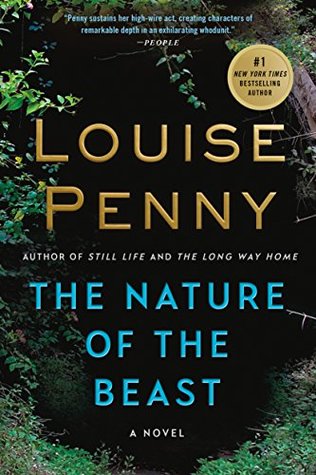More on this book
Community
Kindle Notes & Highlights
“Partly, but I run a bookstore,” said Myrna, looking at the row upon row of books, lining the walls and creating corridors in the open space. “So many of them were banned and burned. That one,” she pointed to the Fahrenheit 451 Clara still had in her hands. “To Kill a Mockingbird. The Adventures of Huck Finn. Even The Diary of Anne Frank. All banned by people who believed they were in the right. Could we be wrong?” “You’re not banning it,” said Clara. “He’s allowed to write and you’re allowed to pull your support.”
Ongoing questions, uncomfortable questions I struggle with but always seem to clear to others, of where the line is. What is taking a strong stand, and what is violating the rights of others? People I disagree with. People whose opinions I vehemently disagree with and even believe might be dangerous? When is it ok to cross the line between vocally disagreeing, and censoring? Mark Twain once said, “Your right to swing your fist ends where my face begins”. This seems like a reasonable and clear definition of the limit of rights. But - we all have different sensitivities. Where something might hurt me, it might not hurt someone else. My “face” perhaps should not be the deciding factor. (Clearly here, I’m not talking about physical abuse, where a fist in the face is not debatable.)
Sarah and 96 other people liked this
· Flag
Karen Cleveland · Flag
Jean Lindholm
If anyone believed in second chances, it was the man who sat before her. She’d been his friend and his unofficial therapist. She’d heard his deepest secrets, and she’d heard his most profound beliefs, and his greatest fears. But now she wondered if she’d really heard them all. And she wondered what demons might be nesting deep inside this man, who specialized in murder.
I love writing the scenes between Armand and Myrna. Their conversations about the human condition, about what drives people to do what they do. Their mutual respect, and complete trust.
Susan Towe and 83 other people liked this
This isn’t our parents’ generation, Armand. Now people have many chapters to their lives. When I stopped being a therapist I asked myself one question. What do I really want to do? Not for my friends, not for my family. Not for perfect strangers. But for me. Finally. It was my turn, my time.
Now this is a question that, on the surface, should be easy for a person in late middle-age to answer. What do I really want? What gives me pleasure. And yet, I’ve found it’s surprisingly difficult to answer. We’re just so imbued with the expectations of others. Of parents, of teachers, of neighbours, of the broader society. The start of this realization came shortly after I met Michael. We were at the Montreal Symphony, using his season tickets. As we left he turned to me and said, “I don’t think I like going to the symphony.” He went on to say that he’d sat there and realized his parents had taken him, then his first wife had taken him, and he’d never asked the question….what does he want? He was 61 years old at the time, and I was astonished. Then I began questioning my choices, as an adult, and realized how much of it was driven by what others told me I should be doing. What do you want? Hmmmm.
Allyson Lewis and 104 other people liked this
But suspicion was inevitable and often turned out to be true. People were almost always killed by someone they knew, and knew well, which compounded the tragedy and was probably why, Gamache thought, so many murder victims did not look frightened. They looked surprised.
One of the challenges of writing the books and, as it turns out, the great pleasures, is getting inside Gamache’s head. Seeing what he sees. Feeling what he feels, or imagining it anyway. What has been his experience? Trying to imagine years and years of investigating murders, investigating people.
Blessing and 57 other people liked this
Clara knew that grief took a terrible toll. It was paid at every birthday, every holiday, each Christmas. It was paid when glimpsing the familiar handwriting, or a hat, or a balled-up sock. Or hearing a creak that could have been, should have been, a footstep. Grief took its toll each morning, each evening, every noon hour as those who were left behind struggled forward.
I wrote this passage, this book, as Michael slipped further and further into dementia. As horrific as that was, there was also some comfort in knowing this pain brought us closer to others. That far from being alone, we were among the majority of people, who’d lost ones they loved. And lived in grief. I was, and am, so lucky on so many levels, including being able to turn that grief into a book. Rather than just writing from the head, I can write from the very core.
Lin and 107 other people liked this


